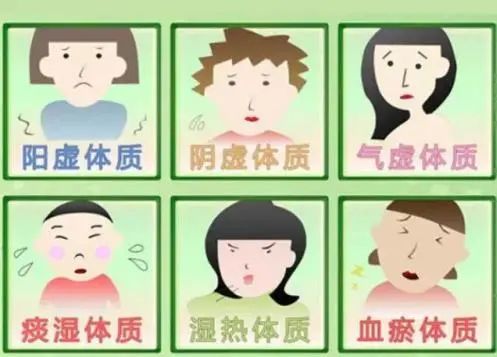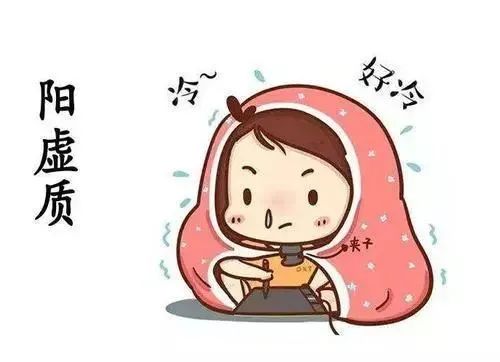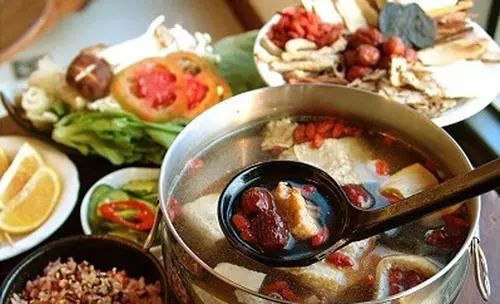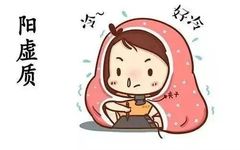Author
Ma Jingzhuo
The specificity of individual constitution often leads to susceptibility to certain diseases.
The differences in constitution reflect the internal imbalance of yin, yang, qi, and blood in the body, representing the overall characteristics of the individual. An individual’s constitution is determined by congenital endowment and is not fixed; postnatal growth, living environment, diet, and lifestyle can all influence and change the constitution. From birth to old age, we follow a natural developmental pattern. However, by paying attention to maintenance and adjustment in daily life, one can improve their constitution and extend their lifespan. Individuals with biased constitutions can improve or correct their conditions through dietary, lifestyle, and emotional adjustments, potentially transforming into a balanced constitution to achieve longevity.

1. Characteristics of Constitution
Yang Deficiency Constitution
Yang deficiency constitution is relatively easy to identify. Yang qi has a warming effect, and individuals with yang deficiency are particularly sensitive to cold, often wearing more clothing than others, having cold hands and feet, and disliking air conditioning in summer; they are intolerant of the cold winter.
Those with yang deficiency have soft muscles, fear of cold, cold extremities, prefer warm foods, have a pale and swollen tongue, a deep and slow pulse, and are prone to wind, cold, and dampness. Their temperament is often quiet and introverted, and they frequently experience cold-related conditions, easily suffering from phlegm, edema, diarrhea, and bone and joint diseases.

Yin Deficiency Constitution
Individuals with yin deficiency constitution exhibit characteristics that are often the opposite of those with yang deficiency; they fear heat rather than cold and prefer cool foods and spicy dishes. This is commonly seen in people with fast-paced lifestyles, those who work long hours, experience high mental stress, and women in menopause.
Yin deficiency individuals tend to be slender, intolerant of heat, have a reddish complexion, often feel dry eyes, dry mouth and throat, experience heat in the palms and soles, frequently have dry stools, and exhibit an irritable, extroverted, and lively temperament. They are prone to insomnia, anxiety, chronic pharyngitis, chronic gastritis, and diabetes. They tolerate winter but not summer.

2. Causes of Constitution
Yang Deficiency Constitution
One reason is insufficient congenital yuan qi (original qi) and true yang, which means that what is inherited from parents is inadequate. Some women may struggle with infertility, which is related to yang deficiency; when a woman has a yang deficiency constitution, her uterus becomes a cold environment. If the uterus is too cold, it resembles the cold seasons of nature, where nothing thrives.
In addition to congenital causes leading to yang deficiency, many individuals who initially have good health may gradually develop yang deficiency due to neglect. For example, during autumn and winter, wearing insufficient clothing and not paying attention to warmth can allow external cold to invade the body, cooling the entire qi and blood, resulting in yang deficiency. Additionally, consuming cold foods over time can damage the spleen and stomach, leading to internal cold. In summary, yang deficiency is common, with insufficient yuan yang possibly due to inadequate congenital endowment, such as when parents are older and frail, having children late in life, which can lead to insufficient nurturing during pregnancy, or due to improper postnatal care, nutritional deficiencies, or internal injuries from overwork in middle age, leading to declining yang with age, and various deficiencies affecting the kidneys.
Yin Deficiency Constitution
Individuals with yin deficiency generally have insufficient true yin, which is related to congenital weakness, prolonged illness, blood loss, and excessive labor that damages yin.
If one wishes to nourish yin, the focus should be on tonifying the kidneys, as nighttime is the best time for kidney nourishment. During the day, one should be active, while at night, one should rest, following the natural order. Therefore, we should align with nature, exercising when appropriate during the day and resting at night, avoiding staying up late or going against this natural rhythm.
3. Constitution Nourishment
Yang Deficiency Constitution
Dietary Nourishment:
For those with yang deficiency, the key is to tonify yang. Among the five organs, the kidneys are the root of yang qi in the body, and the spleen and stomach are the source of yang qi transformation, so emphasis should be placed on nourishing the spleen and kidneys.
Avoid foods that are cold and cooling, which can harm yang qi; refrain from cold drinks and raw fruits. Instead, incorporate warm foods, and avoid eating raw vegetables; it is best to blanch them in boiling water or cook them. Foods that are sweet and warming, such as beef, lamb, scallions, ginger, garlic, Sichuan pepper, leeks, and chili peppers, should be consumed more. Additionally, it is important to remember that yin and yang are interdependent; if yang is deficient, it cannot generate yin and blood, so while tonifying yang, one must also avoid excessive warmth that could deplete qi and blood.
For those with yang deficiency, it is important to avoid raw and cold foods, even in summer, and not to consume too much watermelon, pears, or bitter melon.
Furthermore, individuals with yang deficiency should limit their intake of green tea. Tea is not suitable for everyone; green tea is cold in nature, and those with yang deficiency should drink less or avoid it altogether. Wu Zhenglun believes that tea “should be consumed sparingly; otherwise, it is better not to drink it at all. Excessive consumption can deplete body fat, leading to coldness in the lower body, which is particularly unsuitable when hungry. Only after a full meal is it acceptable to have one or two cups of tea, but it is best to avoid adding salt or drinking on an empty stomach, as this can severely damage kidney qi.”
Medicinal Diet:
For example, Dang Gui Sheng Jiang Yang Rou Tang (Angelica and Ginger Lamb Soup) is the primary dietary therapy for warming yang, tonifying kidneys, and nourishing blood, especially suitable for winter use. Jiu Cai Chao He Tao Ren (Stir-fried Leeks with Walnut) can tonify kidneys and assist yang, warming the lower back and knees, suitable for symptoms of kidney yang deficiency, such as cold pain in the lower back and knees. Jiu Cai Xia Ren (Leeks with Shrimp) can tonify deficiency and assist yang, often used for impotence or infertility due to cold in the uterus, providing supportive treatment. Yi Zhi Ren Shan Yao Zhou (Alpinia and Yam Porridge) can tonify kidneys, strengthen the brain, consolidate essence, and reduce urination, beneficial for elderly individuals with frequent nighttime urination and children with excessive salivation or nocturnal enuresis.

Lifestyle Adjustments:
Suitable exercises include gentle and relaxing activities such as jogging, walking, practicing Tai Chi, or doing calisthenics. Self-massage of acupoints such as Qihai (CV6), Zu San Li (ST36), and Yong Quan (KD1) is beneficial, or regularly stimulating Zu San Li and Guan Yuan (CV4) acupoints.
It is important to avoid long-term work and living in dark, damp, and cold environments, and to refrain from staying up late, as this can severely damage yang qi. Those who stay up late often appear haggard and fatigued, as yang qi is constantly mobilized externally, preventing it from being stored and resting.
Emotional Adjustments:
Individuals with yang deficiency often have a quiet and introverted personality, frequently experiencing poor emotions and low spirits. They should work on regulating their emotions, finding ways to express themselves or confide in others to change their mindset.
Yin Deficiency Constitution
Dietary Nourishment:
Individuals with yin deficiency should consume more foods that nourish yin and provide moisture, such as mung beans, lilies, lotus root, cucumbers, tomatoes, winter melons, tofu, milk, sugarcane, pineapples, bananas, pomelos, kiwis, and honey. Foods rich in fats, such as walnuts, sesame seeds, and peanuts, can be consumed in moderation to generate fluids and nourish yin. They should generally avoid foods like lamb, scallions, ginger, garlic, leeks, and chili peppers, which are warming and drying. It is advisable to eat fresh vegetables and fruits high in fiber and vitamins, and to consume protein-rich foods, as well as foods like mung bean soup, watermelon, winter melon, and loofah to reduce internal heat, as those with this constitution are prone to heat.

Medicinal Diet:
Ejiao Cake (Donkey-hide Gelatin Cake) nourishes the skin and blood, tonifying kidneys and enhancing beauty, especially suitable for those with blood deficiency, anemia, or women with scanty menstruation. However, if there is internal heat due to yin deficiency, with symptoms like five hearts heat, and mouth sores, it should not be consumed excessively.
Honey Steamed Lily can nourish the lungs, moisten dryness, and clear heat, suitable for symptoms of lung heat, irritability, or dry cough, and sore throat.
Lifestyle Adjustments:
Maintain a certain amount of rest during the midday break, avoid staying up late and intense exercise, and control sweating during workouts, replenishing fluids in a timely manner.
Emotional Adjustments:
Individuals with yin deficiency are prone to irritability, anxiety, and emotional fluctuations. They can listen to soothing and lyrical music, remind themselves to calm their minds, maintain a stable mindset, and learn to timely redirect negative emotions, cultivating a habit of calmness and composure.
4. Conclusion
In summary, regardless of the type of constitution, it is best to regularly consume a diet suitable for one’s constitution, paying attention to the flavors and combinations of foods, ultimately nourishing the spleen and stomach, ensuring a source for the generation of qi and blood, and maintaining a balanced yin and yang within the body, seeking “Yin is balanced, Yang is secret, and the spirit is treated.” At the same time, based on the type of constitution, appropriate methods should be adopted to adjust emotions.
References:
[1] Wang Qi. Study of TCM Constitution. 2008[M]. Beijing: People’s Health Publishing House, 2009, 4:2.
[2] Zhang Nan. Medical Insights. 1987[M]. Beijing: China Ancient Books Publishing House, 1987:25.
[3] Wang Qi. Current Status and Prospects of Research on TCM Constitution Theory. Journal of Shandong University of Traditional Chinese Medicine, 1994, 18(2): 74-82.
[4] Wu Zhenglun. Essentials of Health Preservation. 2011[M]. Beijing: Religious Culture Publishing House, 2011, 5:40.
[5] Li Shizhen. Compendium of Materia Medica (Annotated Edition). 1982[M]. Beijing: People’s Health Publishing House, 1982, 11:1560.
[6] Jiang Lisheng. Essentials of Dietary Health in TCM. Journal of Jiangxi University of Traditional Chinese Medicine, 2010, 22(6): 27-34.
[7] Lü Peiwang. Understanding Constitution and Health Preservation in One Book. 2016[M]. Zhengzhou: Zhongyuan Farmers Publishing House, 2016: 33-50.

Scan the QR code to follow us
Text and Image Editor: Liu Chang
Text and Image Reviewer: Dai Dai

